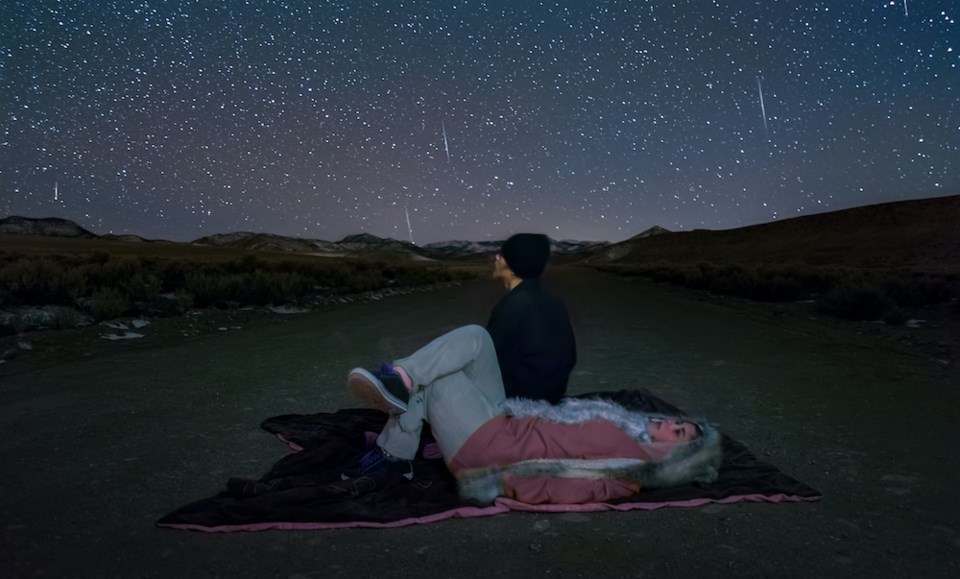November rain is fairly common to see in Metro Vancouver -- and to hear from time to time on the radio -- but it is certainly more exciting to witness shooting stars raining down across the region.
The Geminid meteor shower kicked off on Nov. 19 and will continue through the holiday season until Christmas Eve (Dec. 24), peaking overnight on Dec. 14.
NASA considers the autumn shower to be one of the year's "best and most reliable," producing up to 120 meteors per hour in "perfect conditions." The meteors are bright and fast and "tend to be yellow."
That said, even without perfect conditions, you can often catch 50 or more meteors per hour during the peak of the shower, according to EarthSky.
Nearly 200 years old, the Geminid Meteor shower offers earthlings a brighter display every year (depending on the moonlight, of course). Space.com notes that this is due to Jupiter's titanic gravitational pull that has brought the stream of particles from the "shower's source, the asteroid 3200 Phaethon, and closer to Earth over the centuries."
Late fall/early winter meteor shower 2023 hunting tips in Metro Vancouver
As with any meteor shower, you should find an area further away from light pollution in the city. While this works best in more remote places, anywhere that has a higher elevation will also provide more ideal viewing conditions.
Since it takes place overnight in December, you'll want to prepare for colder conditions. Bring a sleeping bag, blanket, or lawn chair and dress accordingly.
To fully enjoy the spectacle, here are a few more tips for meteor hunting:
- If you need to use a flashlight, place a red filter over the bulb (a red balloon will do in a bind). White light is very blinding and may affect your night vision.
- Dress warmly. It is still a good idea to bring warm (even winter) clothes.
- Sit back and relax on a reclining chair or lie down on a blanket. Not only is it much more comfortable to observe the stars lying down, but you'll also see more that way.
- Pack a thermos of hot chocolate or coffee—it will come in handy if you start to drift off or get a little chilly.
- Be patient. It might take a while before you see your first shooting star.
You can use V.I.A.'s Weatherhood to get the Metro Vancouver weather forecast for over 50 neighbourhoods across the region. Depending on what conditions are like on the night of the shower's peak, you may want to venture to another place to watch it.



